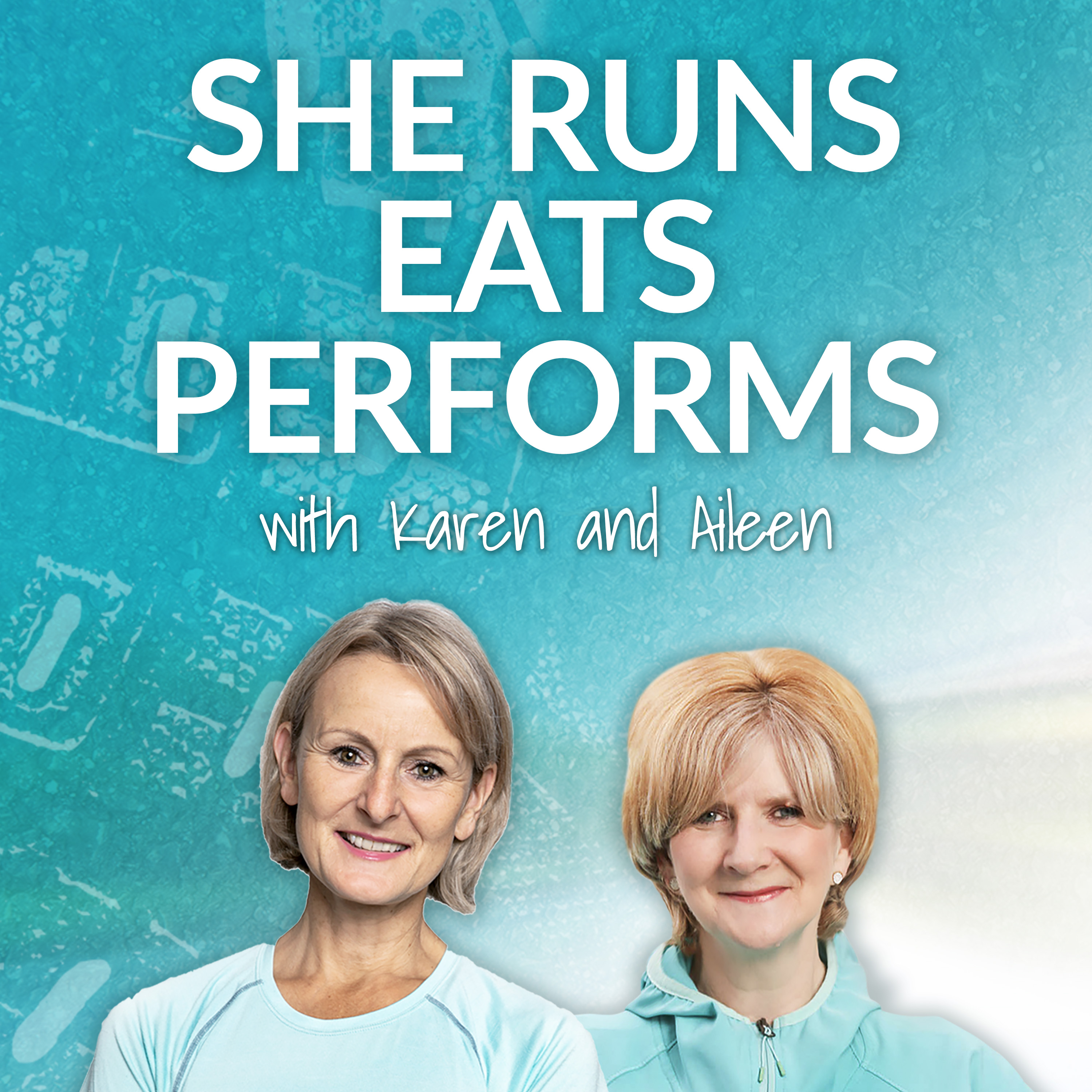FOCUS ON....Magnesium
FOCUS ON....Magnesium
Introduction:
Magnesium is an essential mineral (i.e. it MUST be provided from our diet as the body is unable to synthesise it) and is known as the “universal mineral” because it plays an important role in so many metabolic reactions (over 300) both as a mineral and a co-factor for enzymatic reactions.
The adult human body contains about 25 grams of magnesium of which:
- Over 60% of all the magnesium is found in the skeleton
- 27% is found in muscle
- 6% to 7% is found in other cells
- Less than 1% is found outside of cells
Magnesium is known to play a key role in MANY biological processes that influence sports performance too. So, in this episode we discuss its importance in:
- Muscle function
- Glucose metabolism
- Energy production
We then consider the effects of Magnesium status on running performance and delve into potential risk factors for suboptimal Magnesium levels including:
- Diet
- Stress
- Medication
- Age
We then move on to focus on key nutritional interventions to support optimal Magnesium status e.g.
- Increase intake of magnesium rich foods
- Reduction of foods and beverages that may limit magnesium absorption from the digestive tract
- Magnesium supplementation
SHOW NOTES
(04:13)
Magnesium is an essential mineral involved in over 300 metabolic reactions within the body. It is also a very important mineral for a runner for many reasons including:
- Muscle function
- Glucose metabolism
- Energy production
BUT it is a mineral that is often neglected. Some studies have found that the dietary intake of magnesium is often low in athletes and yet it is thought that the magnesium demands of an athlete could be up to 10 to 20% higher than in the general population.
(08:06)
Looking at Magnesium’s importance for the runner in more detail i.e.:
1) The muscle contraction/relaxation cycle – magnesium acts as a natural calcium blocker
2) Glucose metabolism – magnesium is influential in 3 key ways:
- It helps regulate glucose homeostasis
- It regulates glucose phosphorylation
- It acts as the cofactor for several key enzymes including pyruvate hydrogenase - required for metabolic flexibility
3) Energy production – ATP (the body’s energy currency) needs to be bound to Mg to be biologically active.
(17:39)
Compromised magnesium status could affect running performance in several ways including:
- Fatigue – linked to poor energy production
- Muscle weakness and damage – due to poor muscle function
- Reduced glucose breakdown – leading to poor energy production
- Restless leg syndrome – due to poor muscle relaxation
So, if you are experiencing any of these symptoms, it might be worth having your magnesium levels tested to determine, or hopefully rule out, a magnesium insufficiency or deficiency.
(24:10)
What are the risk factors for suboptimal magnesium levels? Well, there are many, some of which are within our control and others that are outside of our control.
Risk factors within our control include:
- Diet – low in foods containing magnesium, high in alcohol/coffee/fizzy drinks leading to poor absorption of magnesium
- Overhydration – increased excretion of Magnesium in urine
- Stress – depleted magnesium availability
- Pharmaceutical medications e.g. laxatives and diuretics – increased excretion of Magnesium
Risk factors outside of our control include:
- Age – older individuals thought to have a lower magnesium intake
- Certain health conditions e.g. inflammatory bowel disease – interferes with digestion and absorption of magnesium
(33:26)
Female Factors:
- The recommended daily intake of Mg, which is lower for women than men as we mentioned earlier i.e. 300mg for men and 270mg for women – this is for adults aged 19 to 64yrs.
- Some studies state that an Increased daily intake of Mg for runners (all runners, not just females) could be important, however currently there is not a recommended daily intake…although I did mention earlier that it is thought athletes may require 10%-20% more Mg than the general population due to potential losses through sweat and the demands of exercise. I would recommend working with a nutrition professional as they would be able to help personalise an individual’s Mg needs. Aileen and I would certainly be able to support anyone who would like or needs professional support.
(35:21)
Let's take a look at what you can do nutritionally to support optimal magnesium status:
1) Reduce the intake of foods and beverages that could inhibit Magnesium absorption
2) Increase the intake of foods rich in Magnesium e.g.
- Dark green leafy vegetables (esp spinach, kale and Swiss chard)
- Nuts and seeds (esp. almonds, cashews and pumpkin seeds)
- Sea vegetables e.g. Nori and Kelp
- Dark chocolate – choose one with at least 70% cacao solids
3) Reduce intake of (or ideally remove) caffeine, alcohol and fizzy drinks
4) Be mindful of overall fluid intake to avoid overhydration
(43:27)
There are some lifestyle approaches to supporting magnesium status including:
- Magnesium salt baths – Epsom salts could also be used
- Magnesium body lotions and sprays – small amounts may be absorbed through the skin
- Supplementation – may be required, but it is recommended you test first so that supplements can be targeted
(47:26)
Key takeaways:
1) Just as a reminder Magnesium is an essential mineral, that is….it MUST be provided from our diet as the body is unable to synthesise it.
2) Mg is known as the “universal mineral” and is known to be involved in over 300 metabolic reactions as a mineral but also a co-factor in enzymatic reactions.
3) Mg is important for a runner because it is influential in energy production, glucose metabolism, and muscle contraction…to name the ones we have discussed today; however Mg is thought to support exercise performance in many other ways both directly and indirectly.
4) Mg insufficiency or deficiency COULD affect running performance due to:
- Fatigue – linked to poor energy production.
- Muscle weakness and damage – due to poor muscle function
- Reduced glucose breakdown – leading to poor energy production
- Muscle cramps and twitches and Restless Leg Syndrome – as a result of poor muscle function and compromised neural pathways.
5) There are many risk factors for compromised Mg status, some of which are within our control and others outside of our control.
- The ones within our control include: diet, stress, exercise, possibly some medications
- And ones outside of our control include: Age, certain medical conditions (Crohn’s, kidney disease) and certain medications.
6) We CAN take control of our diets to help increase Mg availability. Some changes to consider include:
- Reducing your caffeine, alcohol and fizzy drink intake
- Drinking sufficient water, but not overhydrating
- Increase your intake of DGLV, nuts and seeds, wholegrains and…not forgetting…dark chocolate.
7) Finally, if you think low Mg may be an issue for you then we recommend you have your levels tested and then work with a professional who will address YOUR needs. Remember Aileen and I are available to support you if required.
Related Episodes:
Ep21 Bone Health for Runners Part 1
Ep24 Bone Health for Runners Part 2
Disclaimer:
The suggestions we make during this episode are for guidance and
advice only, and are not a substitute for medical advice or treatment.
If you have any concerns regarding your health, please contact
your healthcare professional for advice as soon as possible.
Aileen Smith and Karen Campbell met at as nutrition students (Institute for Optimum Nutrition, London) and became lifelong friends and nutritional buddies! Both have a love of running and a passion for nutrition, delicious food and healthy living.
Together they host RUNNERS HEALTH HUB. A place for like-minded runners who are looking for simple ways to support running performance, energy, endurance, and general great health.
We are excited to be able to share our expertise, experience and short cuts with you. We hope you'll join us again. If you'd like to know more about us and She Runs Eats Performs please check out our TRAILER.
If you're ready to make learn more about how you may introduce easy nutrition into your running and training plan join our Easy Nutrition For Healthy Runners Online Programme for short videos, recipes, downloads and LIVE training and Q&A.
As a THANK YOU to you as one of our valued listeners, we have a special offer for you use COUPON CODE POD to get 33% discount off the full price which brings the price to £199.
If you’d like help from Karen and Aileen to design a personalised sports nutrition plan for your running - please contact them at hello@runnershealthhub.com
Happy Running!
Aileen and Karen

